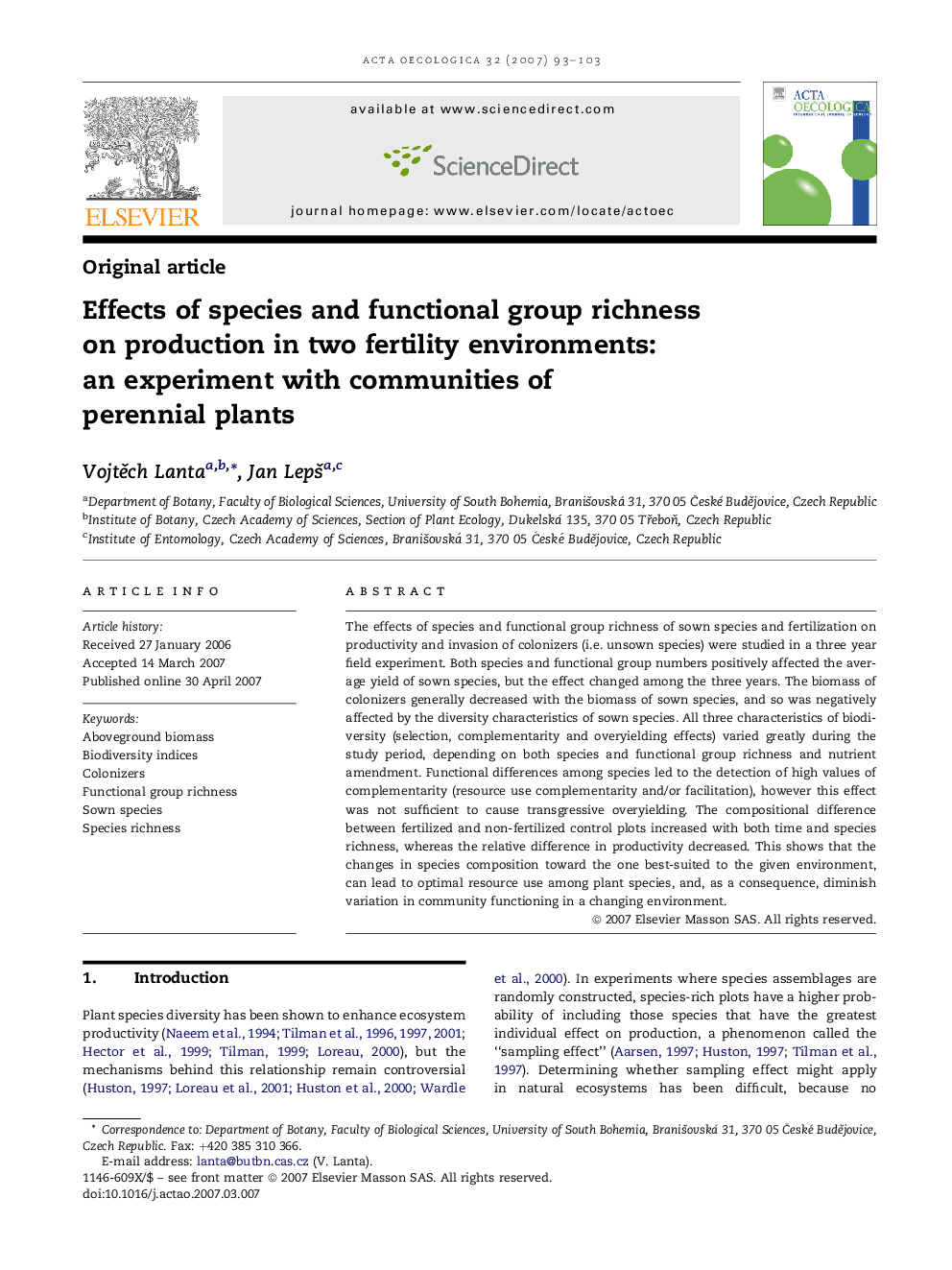| Article ID | Journal | Published Year | Pages | File Type |
|---|---|---|---|---|
| 4381621 | Acta Oecologica | 2007 | 11 Pages |
The effects of species and functional group richness of sown species and fertilization on productivity and invasion of colonizers (i.e. unsown species) were studied in a three year field experiment. Both species and functional group numbers positively affected the average yield of sown species, but the effect changed among the three years. The biomass of colonizers generally decreased with the biomass of sown species, and so was negatively affected by the diversity characteristics of sown species. All three characteristics of biodiversity (selection, complementarity and overyielding effects) varied greatly during the study period, depending on both species and functional group richness and nutrient amendment. Functional differences among species led to the detection of high values of complementarity (resource use complementarity and/or facilitation), however this effect was not sufficient to cause transgressive overyielding. The compositional difference between fertilized and non-fertilized control plots increased with both time and species richness, whereas the relative difference in productivity decreased. This shows that the changes in species composition toward the one best-suited to the given environment, can lead to optimal resource use among plant species, and, as a consequence, diminish variation in community functioning in a changing environment.
